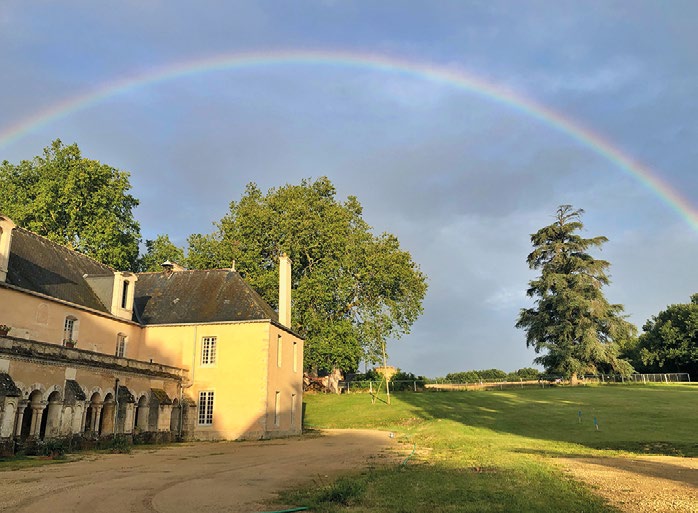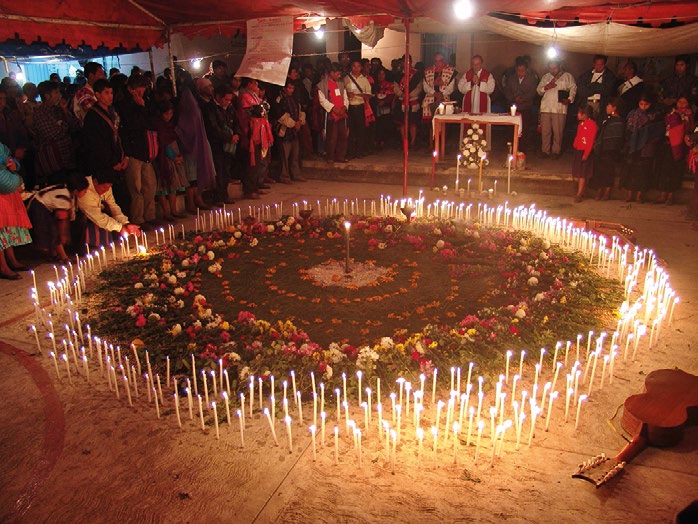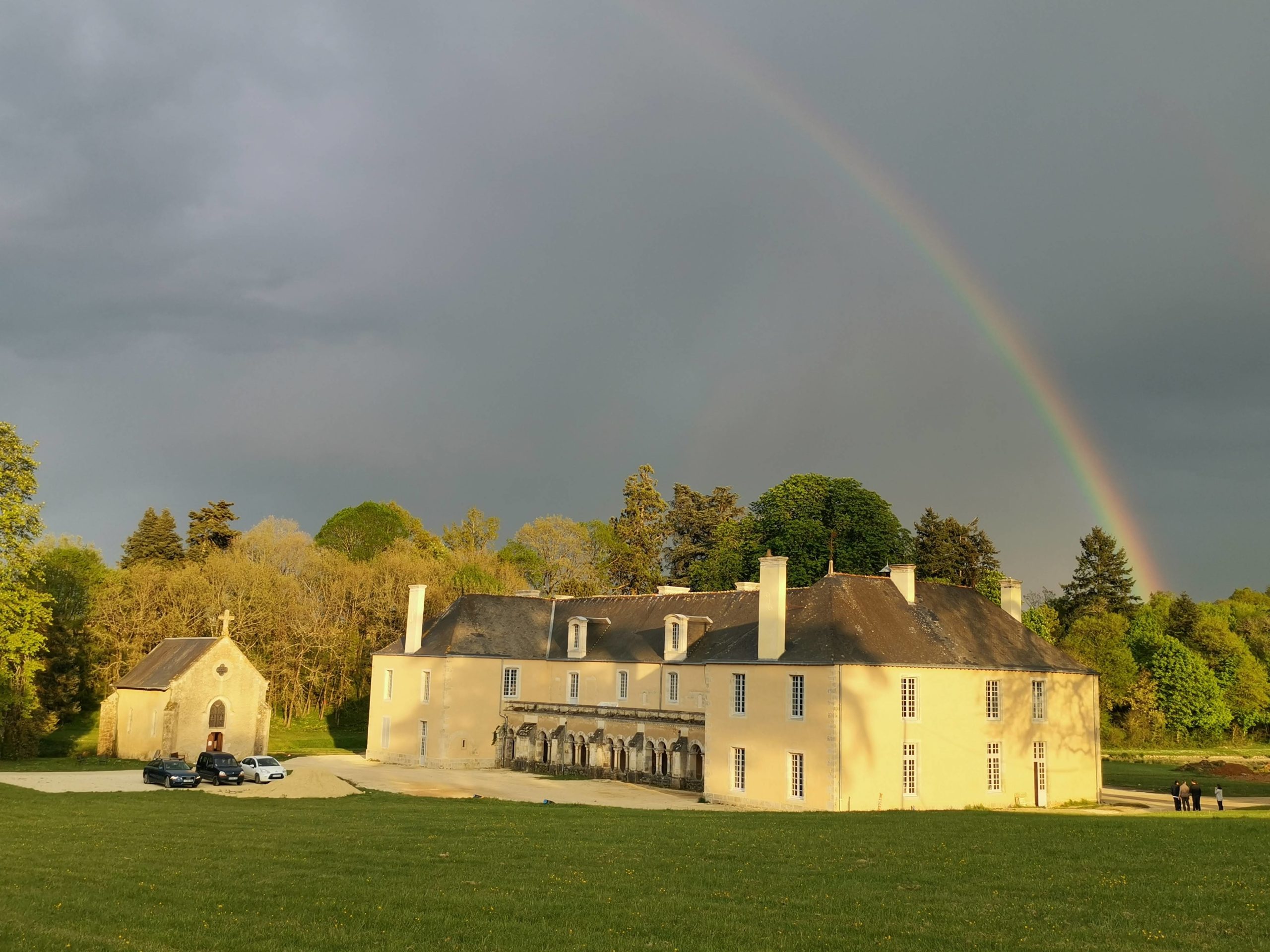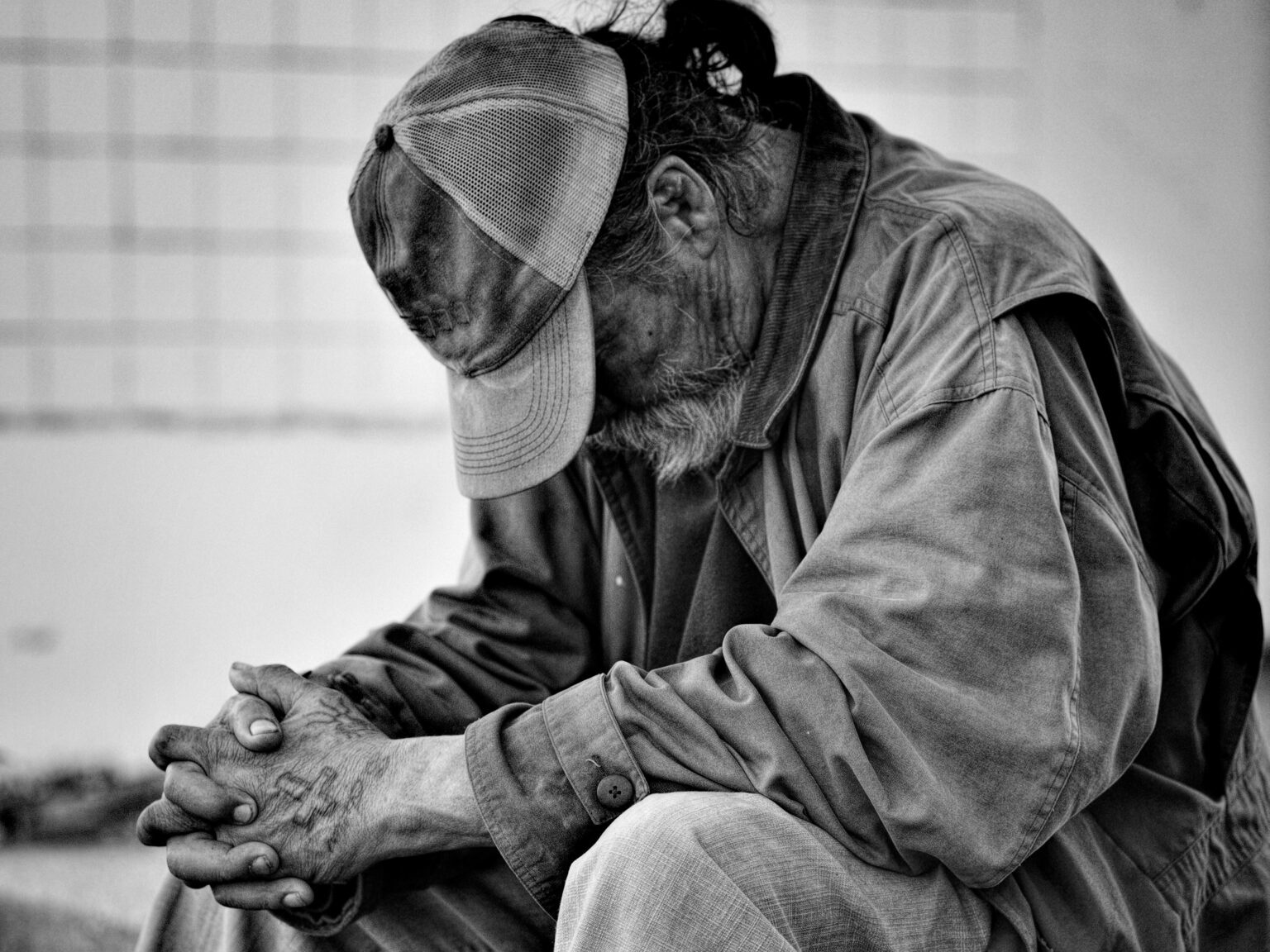Dear friends,
Several people have asked me, some with a smile, if I found it hard being confined at Bonnevaux during the past few months, given my frequent travel around the World Community in recent years. Hoping not to disappoint them with my answer, I said that I could honestly say ‘no’ to that question.
If one had to be confined anywhere, Bonnevaux is a beautiful prison and the community I was incarcerated with did not riot or make unreasonable demands. We grew together peacefully, sharing solitude and many wonderful moments of celebration and solidarity with the rest of the world with whom we wanted to share the peace we have found here. Before each of the four times that we meditate together daily, I walk up the hill and see other faithful pilgrims also quietly approaching the Barn from different directions and activities. Converging with others in a common place of prayer as the frame of one’s life is a joy I wish more in our troubled society might taste even briefly. Many, of course, did discover it –- in the blooming of online meditation groups – during these months of shutdown where they found loneliness cured by shared solitude.
I did not write the book or read as much as I hoped. Many days I wasn’t travelling further than the Barn but I was meeting with meditators around the world, several continents a day sometimes. I am sure St Benedict would have written a chapter in his Rule on ‘The Right Use of the Internet’. If the Bonnevaux commentary on the Rule that might come out of our daily sharing on it is written one day, I’m sure this chapter will be there, together with advice on welcoming guests like Christ while keeping social distancing.
The secret of peace, as children know, is regularity with variety. Since the Confinement, we have felt called to share the peace of our regular life with all who seek a “contemplative path through the crisis”. This was how we called the new website we started when the crisis broke. With a small editorial group of our younger teachers – Sarah Bachelard, Sicco Claus, Vladimir Volrab, Leonardo Correa – we tried to help make meaning of chaotic events and also to see the opportunity being offered us in often hard and frightening ways. Despair and anger are normal reactions whenever we feel mastered by outside forces that block our plans. But when this negative resistance is not converted, it only worsens the suffering mir Volrab, Leonardo Correa – we tried to help make meaning of chaotic events and also to see the opportunity being offered us in often hard and frightening ways. Despair and anger are normal reactions whenever we feel mastered by outside forces that block our plans. But when this negative resistance is not converted, it only worsens the suffering.

The cure is in the illness. Misfortune is a call to conversion. Of course, we cannot see this in the first impact of a crisis. Something childish in us, the ego facing its own powerlessness, makes us feel irrationally that if we deny and resist what is happening to us strongly enough, it will go away. But it doesn’t. And as reality takes on the force of fate, it is clear that only deep and full acceptance can make sense of it. Only acceptance keeps us sane and allows the feeling of dead-endedness to evolve into something rich and strange. Eventually we say ‘this must be what hope is’. In events we cannot negotiate with, predict or control, or that seem meaninglessly cruel, there emerges the humble surrender of acceptance. Without words we say, ‘As it is, then let it be’. Acceptance is a long process, with many relapses into rage or self-pity, that evolves into surrender. ‘Resist not evil’, Jesus said. Gandhi saw this truth, too, that what we resist persists. Merely to be against something gives it energy. In a silent moment of deep interiority, when the surrender is signed, what we refused to accept becomes a new permanent feature of the landscape of our life now deprived of its power to harm. Accepting the unwanted, welcoming the unattractive stranger into our household, liberates, bestows meaning and expands us beyond anything we could have imagined.
Surrender that is this deep and total becomes a triumph.
For many, Covid 19 has unexpectedly begun a spiritual awakening and a re-evaluation of life’s values. The tsunami of a tiny virus shut down factories, financial institutions, offices, places of worship, planes and trains, schools and universities, overwhelmed healthcare and exposed the flaws of the people and institutions that govern us. But didn’t the internet flourish! We newly discovered its human, spiritual potential. It allowed us to volunteer, in great numbers, to help others, to express solidarity with the worst affected, to meet and pray, to accompany the lonely, to discuss what all this craziness might mean for the future. The crisis has exposed fundamental flaws in our view of the world, our environment and social structures. We are all in the same storm, rich and poor, north and south. But we are clearly not in the same boat. There is a zip code and racial factor in how the virus strikes. So what does ‘getting back to normal’ mean? Do we want to go back, or alternatively, to learn from new sources of wisdom how to change, to be converted in heart and remember what we forgot even that we had lost when we were burning the candle at both ends?
In the black comedy “In Bruges”, two hit men, friends as much as killers can be, are forced to go under cover. One has been commissioned to kill the other who is secretly suicidal. One morning as he is sitting on a park bench the assassin creeps up on him to shoot him. But he sees with horror that his friend is preparing to shoot himself. Forgetting his commission, he prevents him. This act of natural goodness restores a real human value and the story ends with dark but true meanings. The world has been on a course of self-destruction. Has the virus, a deadly assassin, become a friend saving us? Enemies can be our best spiritual friends.
The John Main Seminar this year, hosted by WCCM Mexico, has a providential theme: how the wisdom of indigenous traditions still lives in the human family. How can the rest of the world learn from this? Instead of seeing indigenous societies as ‘primitive’ or just of touristic interest, can we accept their invitation to friendship? Can they help us back to the value we have foolishly abandoned, the sense of the sacred, the loss of which underpins our crisis of meaning and justice.
By sacred | do not mean a religious zone of elevated purity that names this as pure and holy by rejecting that as dirty and profane. This has been the flaw of religion from the beginning justifying the most appalling cults of sacrifice and cruelty. The col- lapse of the sacrificial, violent sacred has distorted organised religion everywhere. Yet this collapse has also released a global search for spiritual meaning which still mystifies most religious leaders. The truly sacred is everywhere and makes everything pure. ‘God saw all the He had made and found it very good! Nothing can survive outside the goodness of this divine source which is the meaning both of each human journey and of the unfolding cosmic miracle.
Alex Zatyrka, who is leading the Seminar in October, speaks in this Newsletter about his lifelong work with the Indians of Bolivia and of Chiapas, Mexico, from whom he has learned what he will share with us. In one particular community that he has come to know well, he sees a manifestation of Church such as we encounter in the Acts of the Apostles. A truly incarnated and indigenous church, a local community living a universal faith. As an example of how they see differently from us he describes how they greet each other with the question ‘how is your heart?’. When they speak of someone who is false, they say ‘he or she has two hearts’.
One of these Indians, from Bolivia, who was educated and exposed to modern society chose to return to his village. He was not seduced by consumer society or afraid of it. He returned because he intuited the fatal self-contradictions of industrial-technological society. One day, he thinks, it will crash and then we will need what is preserved in his and other indigenous wisdom banks. What we think of now as primitive or touristic will be seen as a healing link to the sacredness and wholeness of vision that we became separated from.
Covid has reminded us of what our fast-paced lifestyle made us forget, that life is short. However we may measure it, the human span of days is short. What matters is not the length and quantity, which is the dominant focus of medical science, but the management of suffering and the discovery of meaning. However suffering can be reduced or cured should be made available equally to all. What cannot be cured – like death itself – needs to be accepted and so graciously surrendered to that we live and die with meaning. Meaning is the connection with all we have loved in life and with the whole that we belong to as a small part and yet also as a part that contains the whole.
Healers are not merely technicians who see death as failure and suffering as an embarrassment. Like artists and teachers and timeless wisdom, healers help us see the sacred in all things, whether they hurt or delight, from the direct source of meaning.
I was told recently of a renowned neurologist who was attending an elderly patient and gently broke the news to him and his wife that it was time to go to a nursing home, something the patient had long refused to accept. The doctor spoke from the heart. The patient felt it and surrendered peacefully. As they left the doctor’s office, the doctor accompanied them to the elevator. They thought he was going to another appointment. But when they reached the ground floor, he took the patient by the arm, walked with them slowly to their car in the parking lot, embraced him, helped him into the car and returned to the hospital building When we reach the limits of curing,
we become healers.
I am not saying that the indigenous pockets of wisdom still remaining on the planet hold all the answers. But they are reminders, like friends who stop us from inflicting further harm on ourselves and our fragile planet. If they are to help us, however, we need enough collective sensitivity to what their wisdom means. Without sufficient receptivity in the patient, no healer can work. Locally or globally, contemplatives are the first-level receptors of wisdom.
The ‘contemplative path through the crisis’ will not end when a vaccine for Covid 19 is discovered. The crisis will continue until enough people are on a contemplative path and know, without being told, what wisdom, meaning, surrender, acceptance and the sacred mean. A contemplative consciousness has already been growing silently for some time. Just as Covid has sped up many other existing trends in society – online shopping and working from home – so it has accelerated the evolution of a contemplative consciousness – still side lined or mocked by many, but now emerging as a player on all sides.
The pandemic has reminded us of our inherent solidarity as a human family. It has also exposed the forces at work – like bad government, greedy money-makers and the obscene gulf between rich and poor – that demand correction or punishment. As a sign of our unreality the stock markets
are producing great wealth for some investors while the real economy is crashing. But everyone feels the effects of this global crisis; and everyone feels global warming. As hard wakeup calls they recall us to the unity of humanity and the oneness between humanity and the natural world. Any
glimpse into this unity and oneness is grace: a moment of true contemplation, a lightning flash of wisdom, a healing touch on the wound of our ignorance. Even if it is painful, we want
more of what we experience in these brief insights. Because deep down, as we feel the futility of personal isolation or collective nationalism unleashing chaos and pain, we also want to know what this oneness means.

We face an enigma hidden in a dilemma: the hope concealed in disaster. Our first response needs to be silence. Deep acceptance and surrender release silence. Authentic silence. Not the silence of denial, evasion, refusing to listen to the other point of view, the sound-proofing exclusion of another’s right to exist. This is the silence of the death of the heart that dehumanises and erodes all values. Authentic silence is not escape from bad news or failure but embracing and being penetrated by reality, pleasant or unpleasant as it may feel in the moment. John Main taught meditation so intently because he believed that nothing is more important for modern people than to discover the meaning of silence.
“Silence is necessary for the human spirit if it is to thrive. Not only thrive, but to be creative, to respond creatively to life, to our environment, to friends. Silence gives our spirit room to breathe, room to be… The silence is there, within us. What we have to do is to enter into it, to become silent, to become the silence… Silence is the language of the spirit.”
John Main
What makes anything authentic is that we sacrifice ourselves for it, put our whole self into it. Meditation asks this wholeheartedness of us. It gives the opportunity to lay down our life so that we can be lifted up again into a greater fullness of life. Authentic silence is the fruit of pure prayer and saying the mantra is simply a way of pure prayer. After we have taught meditation to a diverse group of MBA students or professionals in the secular world, I sometimes tell them that what we have just introduced them to is prayer – in its pure, essence. They can look mystified, but I have never found they look offended.
The essence of prayer is purity of attention; from it springs a new perception of truth and freedom. These golden-oldie terms are rejuvenated as current and liveable values. Relationships of all kinds are felt differently in the light of silence. Work acquires a meaning beyond the satisfaction of financial or reputational reward. It becomes good work that brings out the best of us in a spirit of service (think of all the volunteers during the health crisis) and brings benefits to others. The wisdom of traditional societies flows from a lifestyle that is better connected to the rhythms and healing gifts of nature than we are in the techno-industrial world. But to avoid romanticism and idealism, we need a partnership, an innovative kind of friendship between a new order of contemplatives spread through all levels and generations of society and these older cultures. If there is enough time left, this could help to change the course of self-destruction we are still on. The indigenous and the contemplative share a common understanding of the heart as the unified source of wisdom and all forms of love. When we act in harmony with the knowledge of the heart our work is God-centred and upbuilds the unity of humanity. The challenge to our over-noisy world that finds it hard to listen to anything except noise, is that this knowledge, like the heart itself, is silent. It is always now. It is not a tool. It is what it is. It speaks by its fruits.
“The indigenous and the contemplative share a common understanding of the heart as the unified source of wisdom and all forms of love.”
I was recently reminded by a nice surprise party (in Bonnevaux and online) of the fortieth anniversary of my ordination to the priesthood (the forty-first of my monastic vows). I don’t count the years, so I take this on trust. But I do remember the thought passing through my doubting mind a long time ago – ‘where will this take me? Will I be doing this for the rest of my life?’. Simone Weil wrote in her notebook that we can’t meaningfully say ‘always’; but we can truly say ‘never’. I could say I will never willingly betray this gift. But I couldn’t say I will always be a good disciple of it. So, it was a reasonable question to ask myself even if it doesn’t have an answer. I don’t pretend to answer it now.
But I can say that the simple teaching that John Main introduced me to a long time ago has never ceased to reveal new levels of meaning and dimensions of reality. A wish-fulfilling jewel, a diamond sutra, a pearl of great price, a buried treasure. In your presence I would like to thank him – and for his continued guidance of this work. It has led me into the mystery of Christ in ways I could not have imagined. I don’t think I know any more than I did at the beginning but I believe, with a confidence that surprises me, that the simple teaching on meditation is a precious gift for the world, never more precious than in our present need.
In the heart of this gift I have not found knowledge or belief in the ordinary sense, but an ever deepening, receding and approaching stillness. Sitting in that stillness we reach new frontiers and our lives will inevitably reflect what we discover there. Our personal imperfections are embarrassing but not important – which is comforting if you have many of them. In the stillness we are not going anywhere but we are fully on the human journey. We are becoming human and realising what human means. The silence of that stillness teaches us of the friendship of God towards us, His longing for us. This is what we need. Not to surrender to the lure of turning ourselves into cyborgs or genetically recreating ourselves. But to surrender wholeheartedly to the divine potential of our humanity, with all our – ultimately loveable and redeemable – flaws.
Thank you for sharing this vision.
With much love.






